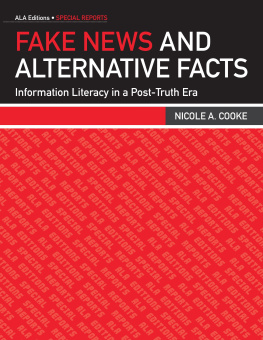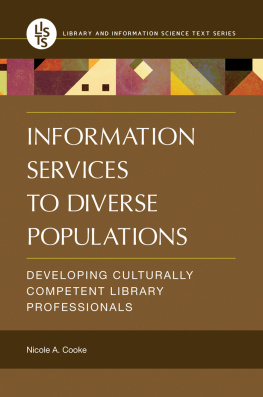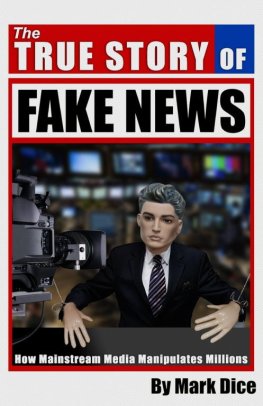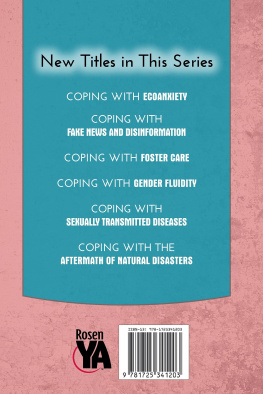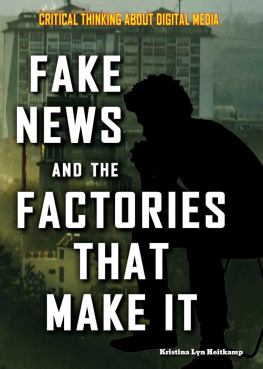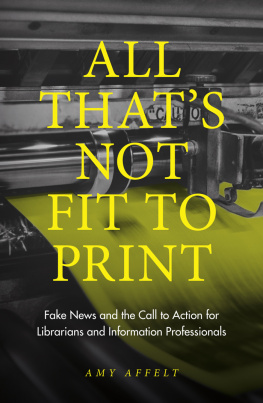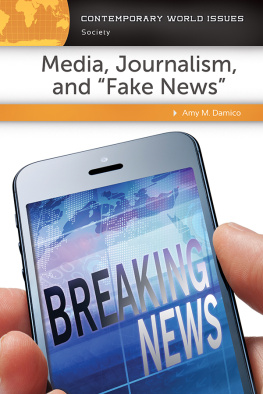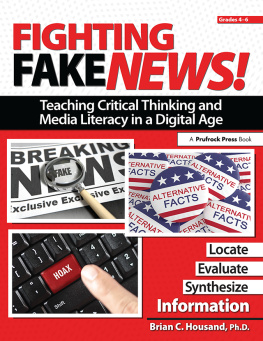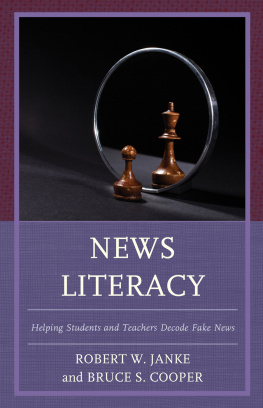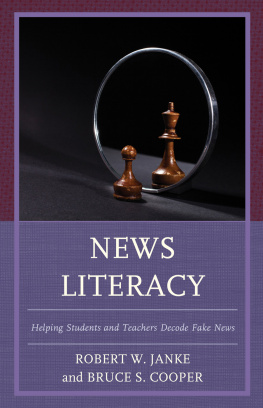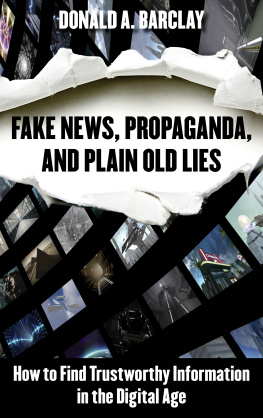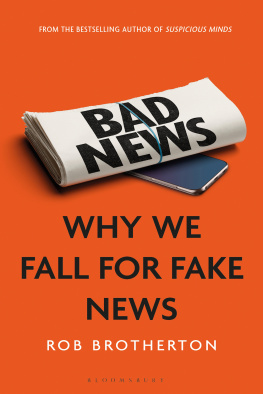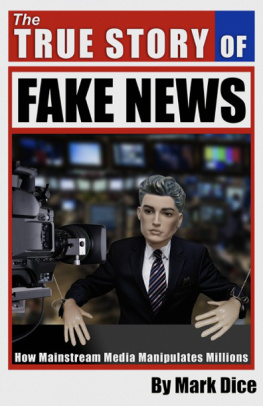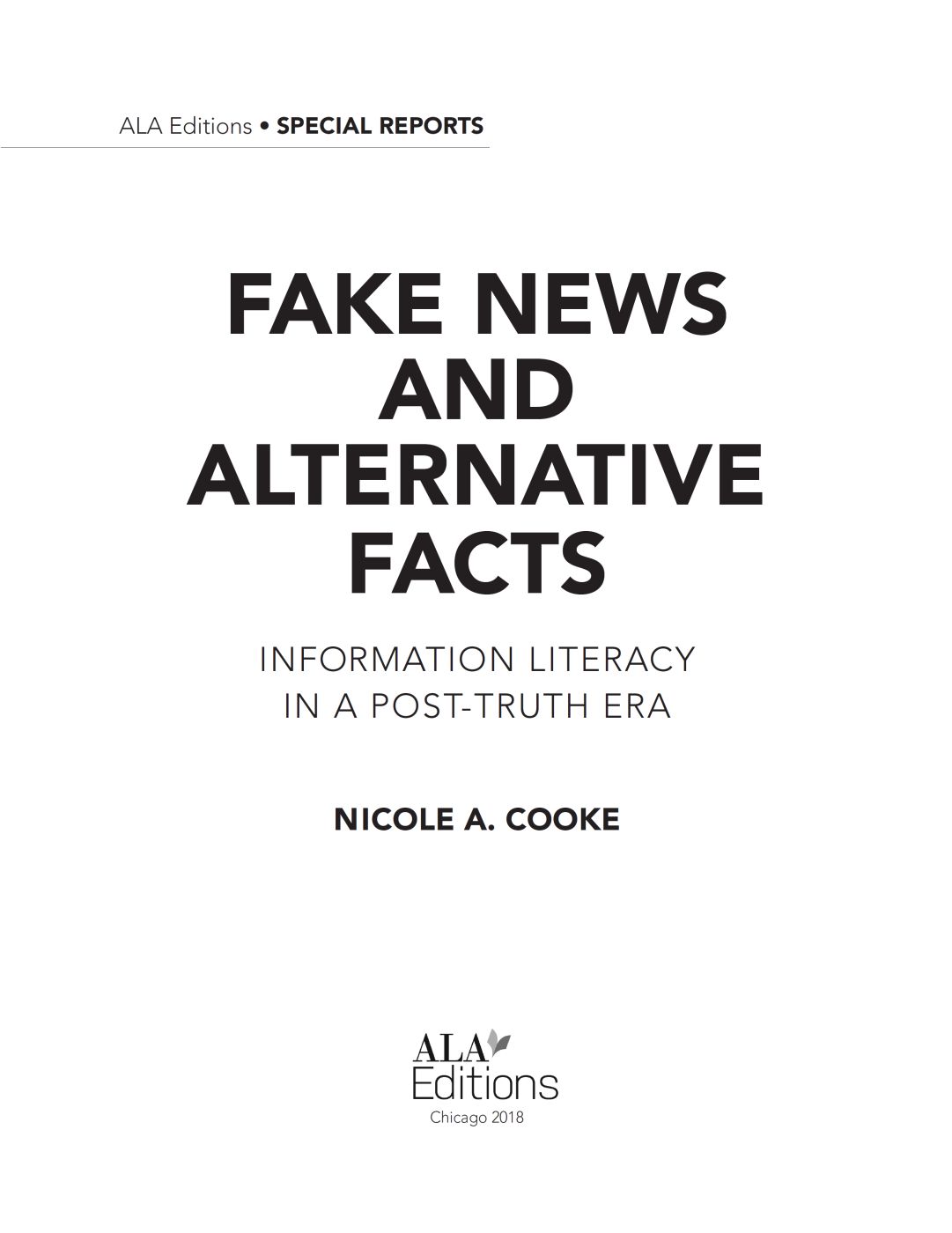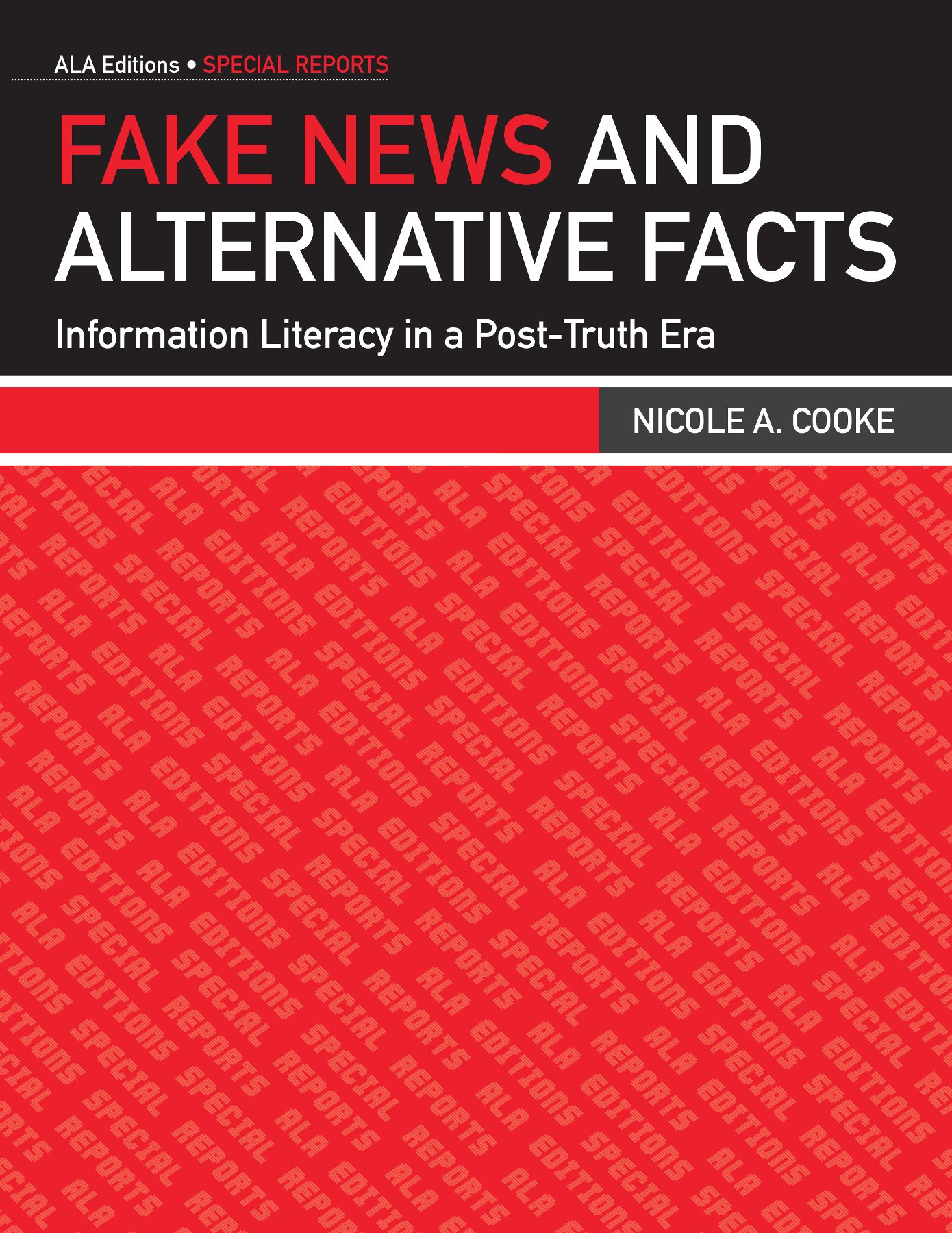
ALA Editions purchases fund advocacy, awareness, and accreditation programs for library professionals worldwide.
2018 by the American Library Association
Extensive effort has gone into ensuring the reliability of the information in this book; however, the publisher makes no warranty, express or implied, with respect to the material contained herein.
ISBNs
978-0-8389-1636-0 (paper)
978-0-8389-1751-0 (PDF)
978-0-8389-1750-3 (ePub)
978-0-8389-1752-7 (Kindle)
Library of Congress Cataloging-in-Publication Data
Names: Cooke, Nicole A., author.
Title: Fake news and alternative facts : information literacy in a post-truth era / Nicole A. Cooke.
Description: Chicago : ALA Editions, an imprint of the American Library Association, 2018. | Series: ALA special report | Includes bibliographical references and index.
Identifiers: LCCN 2018009348| ISBN 9780838916360 (paperback : alk. paper) | ISBN 9780838917503 (ePub) | ISBN 9780838917510 (PDF) | ISBN 9780838917527 (Kindle)
Subjects: LCSH: Information literacy. | Information behavior. | Media literacy. | Fake news.
Classification: LCC ZA3075 .C675 2018 | DDC 306.4/2dc23 LC record available at https://lccn.loc.gov/2018009348
Series cover design by Casey Bayer.
CONTENTS
A t the 2017 American Library Association (ALA) Annual Conference, 2016 presidential nominee Hillary Clinton addressed thousands of librarians and information professionals. Clinton praised librarians for being on the front lines working for the benefit of their communities, and in particular, for encouraging literacy, reading, and the development of curious, brave, informed citizens. She also commended libraries for safeguarding the First Amendment and providing services and resources to immigrants and refugees. However, it was Clintons assessment of librarianships most urgent battle that garnered deafening cheers and an ovation. She said that librarians have to be on the front lines of one of the most important fights we have ever faced in history in this country: the right to defend truth and reason, evidence and facts (ABC News 2017). In this post-truth age librarians are more important than ever.
Fake, or fabricated, news is expressly disseminated for the sake of earning money from clicks and views, and it is also used to mislead and misinform. With astonishing speed, fake news goes viral without being vetted or confirmed. Even if such information is eventually retracted or disproved, the damage has already been done and the false information remains digitally archived. This scenario played out in real time, and in epic proportions, in the months leading up to the 2016 presidential election. Now, after the election, increasing attention is being paid to fake news. But fake news is not new, nor are its relatives: hoaxes, satire, algorithmic biases, lies, alternative facts (NBC News 2017), and propaganda. It just has an alarming new veneer.
It is also true that librarians have been engaged, and been pioneers, in the business of teaching information literacy skills and promoting critical thinking for decades, but this work has, in light of recent events, taken on new meaning and relevance for the public. Now librarians are being called upon to use our information literacy skills to help debunk and decipher fake news. We have a prime opportunity to help our communities and constituents become critical and savvy information consumers, which in turn benefits our nations democracy. Librarians combating fake news and strengthening the critical thinking skills of our patrons is what this report is all about. This report will address the renewed phenomenon of fake news and its related concepts and discuss how a knowledge of information behavior and critical information evaluation skills can aid in combating the effects of fake news.
NOTE
Alternative facts is a phrase used by U.S. Counselor to the President Kellyanne Conway during a Meet the Press interview on January 22, 2017. During the interview Conway attempted to defend and sugarcoat alleged lies told by President Trump and former press secretary Sean Spicer. Meet the Press host Chuck Todd responded to Conway by stating that alternative facts arent facts, they are falsehoods.
INTRODUCTION
R ead the following headlines and determine if the statements are true or false.
- True or False? Ariana Grande Left Bloodied and Dazed after Manchester Bombing
- True or False? Native American Names Deleted off Facebook
- True or False? London Mayor Sadiq Khan Says Citizens Have No Reason to Be Alarmed Following Terror Attack
- True or False? J. K. Rowling Mocks President Trump for Tweeting in the Third Person
- True or False? Ireland Just Elected Their First Gay Prime Minister
- True or False? Man Mowed Lawn during Tornado
- True or False? Maxine Waters Blames the London Attack on Climate and Health Care Inaction
- True or False? Fish Swim in the Streets of Miami at High Tide
- Why do these headlines ring true or false?
- If you saw these headlines on social media, would you share them with your networks? Why or why not?
- How would you present and explain these examples to others? What strategies and resources would you suggest?
See the for an explanation and discussion about these headlines.
A lie can run around the world before the truth has got its boots on.
Quote often attributed to author Terry Pratchett, Winston Churchill, Mark Twain, James Watt, and various others
Its no secret that the Internet is saturated with information of all kinds, and much of the information is of low or no quality. Yet, before we can blink, this information makes the rounds without being confirmed. It is all too easy to believe the latest gossip or innuendo or get lost in YouTube videos featuring pets and pranks. Unfortunately, there is another, darker dimension of information found onlinethere is an excessive amount of web-based information that is both sensational and malicious, to the point of being harmful and even dangerous. Even if such information is corrected or disproved, the audiences attention has long shifted, the damage has already been done, and the original misinformation continues to float around online for future discovery.
It is now said that we live in a post-truth eraan era in which audiences are increasingly likely to believe information that appeals to their emotions and their personal beliefs, as opposed to seeking and accepting information that is regarded as factual and objective. Peoples information consumption is being increasingly guided by the affective, or emotional, dimension of their psyche, as opposed to the cognitive dimension. This post-truth reality is one of the reasons why fake news has become so inescapable, and consequently, why its so hard to combat and interrupt the production and dissemination of deliberately false information.
The phenomenon of fake news is not new, nor is the concept of post-truth. The Colbert Report introduced us to the concept of truthiness over a decade ago, warning us, albeit comically, of the danger of accepting information and stories because they appeal to our emotions and not because they are supported by any real evidence or facts (Colbert 2005). Now, in 2018, journalists and the media remain on high alert and are warning their constituents about the production of confusion that surrounds the current presidential administration and encourages the industry that is fake news. Alternative facts are disseminated daily, and fact-based information or reporting that is negative or objected to is quickly and erroneously labeled as fake news, further obfuscating and suppressing information that citizens should be aware of and prioritizing.
Next page
